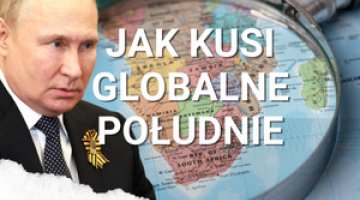The West strikes a blow at the Russian economy
On 26 February, the West’s economically strongest states (the US, Canada, Germany, France, United Kingdom and Italy) and the European Commission announced an extension of the sanctions package against Russia. In the coming days, they plan to disconnect some local banks from the SWIFT system, limit the Central Bank of Russia (CBR)’s financial operations, extend the lists of people subject to individual restrictions, and intensify the fight against Russian disinformation. In addition, the Western allies have announced the establishment of a trans-Atlantic task force that will monitor the implementation of these sanctions and prevent their circumvention. (see Joint Statement on further restrictive economic measures).
On 27 February, the EU Council announced it had finalised work on its own sanctions package, on which basis all the CBR’s financial assets held in the West will be frozen, and all transactions with this institution (in all the relevant national currencies and euros) will be prohibited. At the same time, selected banks (mainly those already subject to restrictions, although a full list has not yet been prepared) are to be disconnected from SWIFT (the Society for Worldwide Interbank Financial Telecommunication). The whole of the EU’s airspace has been closed to Russian planes (any aircraft operated by Russian air carriers and any aircraft owned by private Russian parties). The list of sanctions against individuals will also soon be expanded to include more oligarchs. Media leaks suggest that the restrictions may be expanded to include leading oligarchs such as Alisher Usmanov, Mikhail Fridman, Pyotr Aven, Aleksei Mordashov, Sergei Roldugin (a figure close to Putin) and Kremlin spokesman Dmitri Peskov. As part of the fight against disinformation, the EU intends to impose a ban preventing Russian state media broadcasting within the EU: this covers the English-language RT television station and the Sputnik news website, as well as their subsidiaries (see Statement by President von der Leyen on further measures to respond to the Russian invasion of Ukraine).
The United Kingdom, Switzerland, Norway and Japan have also announced that they will join the EU sanctions package which is currently being prepared.
Even though no formal restrictions have yet been imposed, various Western entities have decided unilaterally to close or limit cooperation with the Russian Federation. On 27 February, BP announced it would sell its 19.75% stake in Rosneft, the largest Russian state-owned oil company; the value of their shares is currently estimated at around US$14 billion. On 28 February, the Norwegian oil company Equinor also announced it would withdraw from all projects implemented in Russia. The company is one of Rosneft’s most important partners, and has worked together with it on mining projects in Western and Eastern Siberia. In total, Equinor’s interests in Russian ventures are currently valued at US$1.2 billion. Several other businesses, including Mercedes, Citroën, BMW, Audi and Jaguar, have already decided to stop exporting car components to Russia. Rolls-Royce has stopped importing titanium from Russia, and also ceased exporting its engines there. Courier UPS and FedEx will no longer deliver shipments to Russia.
Russian markets have reacted to the announcements of new sanctions. On the morning of 28 February (at 9.30 CET) the dollar cost 110 roubles on the Forex currency market (compared to 84 at the end of last week), which means the value of the Russian currency has fallen by 30%. The work of the Moscow Stock Exchange has been suspended indefinitely, and it remains unsure whether it will open again today. At the opening of the London stock market, shares in Sberbank fell by 73%, in Lukoil by 58%, and in Rosneft by 45%.
There has been a nervous reaction to the new restrictions on the retail market. Although the banks hold substantial reserves – Fitch Ratings had estimated them at around US$50 billion in foreign currency and around US$60 billion in interbank accounts (the total liabilities of Russian banks in foreign currencies amounted to around US$320–330 billion) – foreign currency has become a scarce commodity in Russia anyway as the locals try to cash out their savings. Over the weekend, the dollar’s buy-sell spread in Russian online exchange offices almost doubled (150 and 84 roubles respectively).
As part of its plan to protect the financial system, on 28 February the CBR raised the base interest rate from 9.5% to 20%; it also introduced an obligation for exporters to resell 80% of their foreign currency revenues. In addition, on 27 February, the central bank ordered brokers to stop executing orders from foreign entities to sell Russian securities. Furthermore, it permitted banks not to include the losses resulting from sanctions (which would reduce the value of their assets) in their balance sheets until the end of this year.
Commentary
- The most important blow to the Russian financial system will be the embargo on transactions with the Central Bank of Russia. This will cut it off from most of its assets, and thus limit its ability to stabilise the system. The key element in this aspect is the West’s coordination of its actions and the speed at which it has implemented them. In recent years, the Russian Federation has been reducing its dependence on the US dollar in favour of the euro; moreover, the rapid introduction of the embargo will not allow the CBR to withdraw its assets from the West. In mid-February, the CBR’s international reserves were estimated at over US$640 billion in dollar equivalents (however, last week the bank sold them off through its interventions on the currency market; it is not known how big this operation was). Of this reserve sum, over US$310 billion had been invested in securities, and around $150 billion in cash and foreign bank deposits (there is no full information on how much of these assets were deposited with Western central banks). A further 22% of the reserves (c. $130 billion) went into gold in Russia, while the remaining US$30 billion were turned into the IMF’s Special Drawing Rights (SDRs). At the same time, from the perspective of the reserves’ foreign-currency distribution (nota bene the latest information comes from 30 June last year), only just over 16% (c. US$96 billion) has been invested in dollars (their share in this currency has been steadily falling in recent years), 32% (US$189 billion) in euros, around 6% (US$38 billion) in sterling, and 13% (US$77 billion) in yuan. Currently, the CBR’s reserves comfortably exceed Russia’s entire foreign debt (US$490 billion), and they would also suffice to cover almost three years of imports. However, if the assets in dollars, euros, pounds, yen and francs are blocked, and gold proves to be of little use because it will not be possible to obtain currency for it, then they may fall in value by over 60%. It should be noted that striking the CBR reserves also means a de facto blow against the government’s reserves accumulated in the National Welfare Fund, as a significant percentage of them (around 60%, c. US$115 billion) have been placed in the CBR’s accounts and count towards the bank’s international reserves.
- There are many indications that the decision to disconnect only some Russian banks from the SWIFT system is connected with ensuring that energy supplies from Russia remain stable. However, even this step may have negative consequences for some transactions related to the sale of raw materials. Certain commodities traders in Russian oil have signalled that in the first days or even weeks after the new restrictions are introduced, some transactions may be suspended until traders are fully clear about how to operate under the new legal conditions. It is likely that oil prices will temporarily rise to US$105–110 per barrel. Banks cut off from SWIFT (to which more than 11,000 from over 200 countries are connected) will find it very difficult to carry out foreign transactions, and the sanctions imposed mean this will be impossible with Western countries. Meanwhile, when making transactions with other banks, Russian financial institutions will have to use alternative forms of communication, such as the Telex system, which will mean that making deals will take longer and cost more. They will be able to partially use the Russian equivalent of SWIFT, the Financial Transfer System (FTS); however, only about 330 banks are currently connected to this system, of which only a few are based in countries outside Russia (including Belarus, Kyrgyzstan, Armenia, Kazakhstan, Tajikistan or Cuba). The disconnection from SWIFT will only have a limited impact on intra-Russian banking operations: this role should be taken over by FTS, as basically all Russian banks are connected to it. Although its bandwidth is not as large as SWIFT’s, the delays should not be too great, especially as the number of transactions will also be more limited. There should also be no problems with handling payment cards on the internal market, as all transactions (including Visa and Mastercard) are handled by a system operating in Russia. However, Western cards issued by the sanctioned banks will in principle no longer be processed abroad.
- As a result of the closure of EU airspace to Russian aircraft, and as a result of sanctions on services (including leasing) in the aviation sector, Russian carriers are cancelling flights abroad. For now, this primarily covers Western countries, but they may end up avoiding foreign airports altogether. Russian carriers may do this to stop their aircraft being confiscated, as they will probably not want to return the leased planes to their owners. The traditional spring holiday sea cruises, including to Cuba, the Dominican Republic and Mexico, are already being cancelled.





